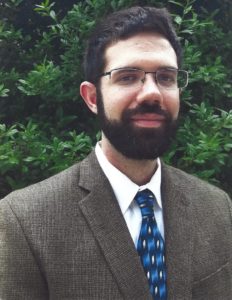
- Fellowship year:2019-2020
- University: University of North Carolina- Chapel Hill
- Dissertation Topic/Category: Medieval Europe
- Dissertation Title: Crusade and Community in the Long Twelfth Century: Communal Italy and the Kingdom of Sicily, c. 1050- c. 1250.
Daniel's dissertation investigates how writers in northern and southern Italy, from the late eleventh through the early thirteenth centuries, delineated the purposes and boundaries of their communities. Through analyses of chronicles, poems, and contracts, he demonstrates that these writers and their audiences made sense of communal life by memorializing acts of violence in terms resonant with a contemporary language of crusading. Individuals and institutions in the Italian peninsula, as they responded to rapidly changing political and social landscapes, produced historically conscious narratives that crystallized and made protagonists out of abstracted groups, such as cities and peoples. During the rise of autonomous civic governance in the north and the advent of the Normans in the south, culminating in the creation of the Kingdom of Sicily, writers from both northern towns and Norman courtly centers described and defined their communities through recording episodes of collective and often interconfessional violence. Both northern and southern Italy, often regarded as regions wholly distinct from one another and from the rest of the medieval world, responded in similar ways to similar pressures; over the course of the twelfth century, European Christians developed a shared cultural language of belonging , othering, and authority that was acutely expressed in the ideology of crusading, and the seemingly disparate experiences involved in the making of twelfth-century Italian communities can be understood in this context.
